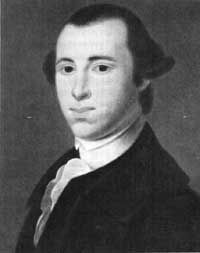Thomas Heyward Jr. (July 28, 1746 – March 6, 1809) was a signer of the United States Declaration of Independence and of the Articles of Confederation as a representative of the South Carolina colony. He served alongside fellow signers Edward Rutledge, Thomas Lynch Jr., and Arthur Middleton.

He was born in St. Luke's Parish to his father, Colonel Daniel Heyward. Daniel wanted to give his son the best education possible and enrolled young Thomas in the best schools in the area. Thomas was a diligent student and inherited the work ethic of his father. He learned Latin, among many other academic disciplines that were common during the 18th century.
Once Thomas finished his early education, he joined the law office of Mr. Parsons, who was known for his professional learning as well as practical skills. Young Thomas learned what he could from Mr. Parsons and then left for England and entered as a student in one of the Inns of Court. While given all the privileges of this world through his father's fortune, Thomas Heyward studied continuously with such diligence that one would have thought his father was poor. Upon graduation, he took a tour of Europe.
Thomas Heyward arrived in his native colony and quickly became an influential political figure. He served as a delegate for South Carolina to the Second Continental Congress and, after much deliberation, would cast his vote in favor of Independence. In 1778 he served as a Judge in which he presided over a case that ended in the hanging of several condemned traitors. He would be captured by the British during the Siege of Charleston and be transported to St. Augustine. While a prisoner, his property suffered great damage, as did his overall wealth.
After his return from capture, he resumed his judicial responsibilities. He would remain a judge until 1798, when he retired from the bench. He died on March 6, 1809.

